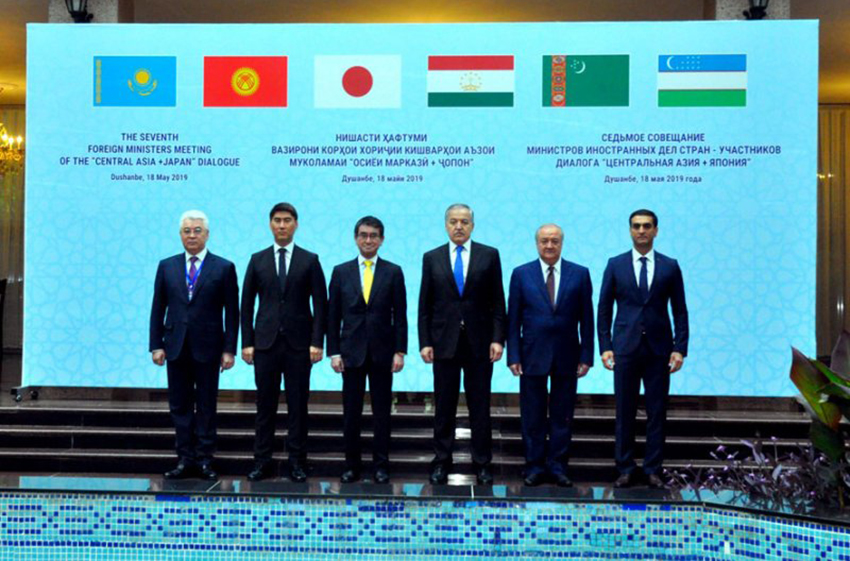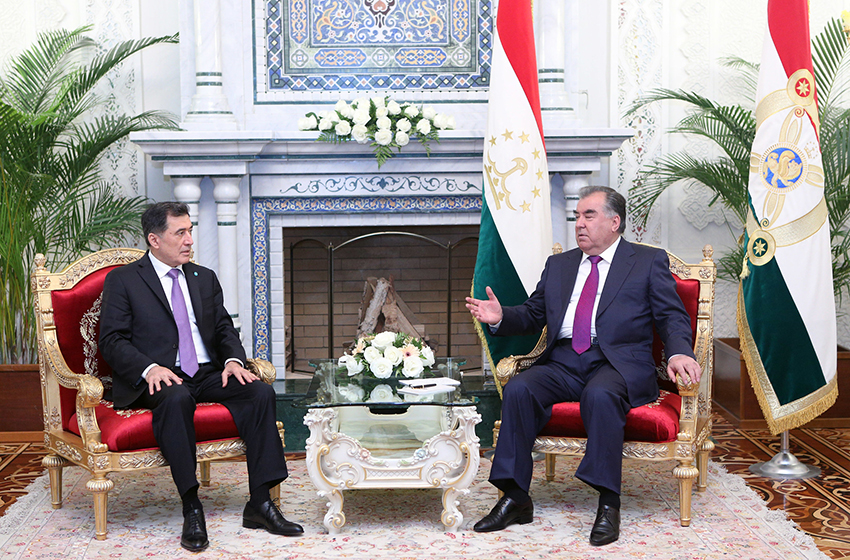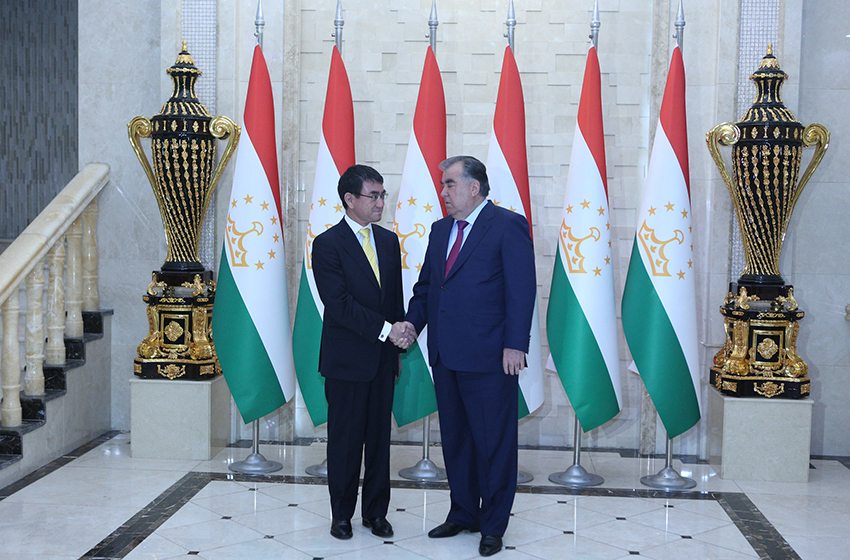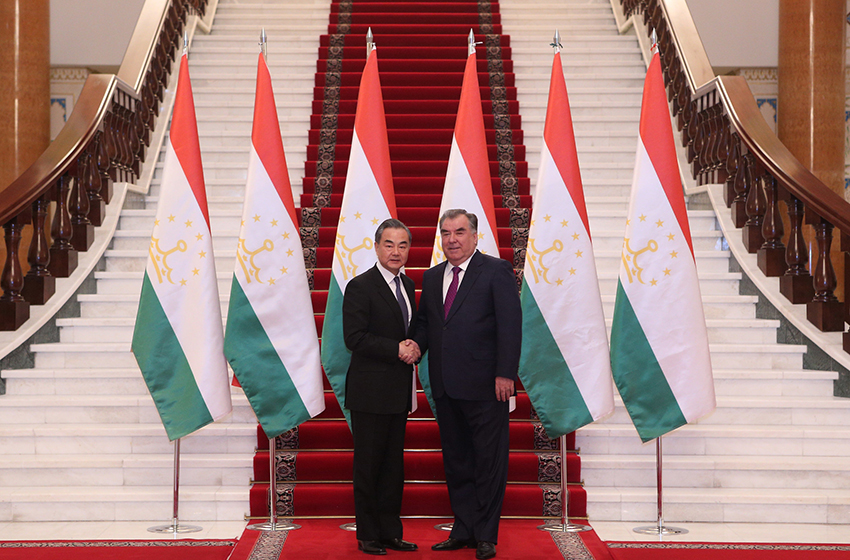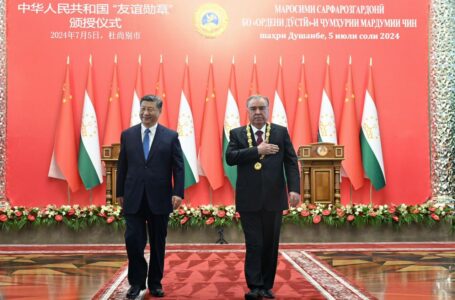
12.02.2020 15:06, Dushanbe city
Dear Participants!
Ladies and Gentlemen!
There is no doubt that the discussion of and addressing the issues related to investment climate improvement and development of business through the public-private open dialogue platform at the 20 sessions of the Consultative Council during 13 years of its operation is aimed at expanding the economic reforms in our country.
Last year the implementation of 300 days of reform created a conducive environment for improvement of the investment climate and business development resulting in 10% increased investment by the private sector to the fixed capital compared to 2018 (from 13.5% in 2018 to 23.3% in 2019).
I am pleased to see that the decisions made at the 19th session of the Consultative Council are overall implemented.
At the same time, ministries and agencies and local executive authorities in province, district and town need to seriously approach the implementation of the assignments reflected in the minutes of the Council and the action plan discussed and adopted by the Council and take into account the private sector’s proposals while aligning these documents. On some occasions, negotiation of these plans take an extensive time, which becomes a bottleneck in implementation of reforms and we need to avoid shortcomings of this kind since reforms can be effective when they are conducted in a consistent way and the objectives set forth are enforced in a timely manner.
The main objective from adoption of the plans, including the 2019-2022 Action Plan on Improvement of Tajikistan’s Indicators in the Doing Business Report is to undertake effective reforms to simplify administrative procedures and reduce the cost by businesses in the country. Our ultimate objective is to make sure the entrepreneurs and investors clearly feel the positive outcomes of these reforms.
Through this reform with a view to ensuring transparent, accessible and cost-efficient process for obtaining construction licenses and permits the Single Window in Dushanbe was established that consolidates the operation of more than ten relevant agencies responsible through online review of applications. This initiative made it possible for the private sector to save their time by 40% and costs by more than 70%.
Everybody is aware that businesses and investors on some occasions face difficulties in obtaining land plot, permit for construction and access to engineering networks. It is concerning that the local authorities afford themselves to delay with regard to supporting ideas of businesses while issuing permits and other documents needed.
Therefore, the Committee for Architecture and Construction jointly with the State Committee for Investment and State Property Management as well as relevant ministries and agencies, executive authorities in province, district and town are mandated to establish the single window for construction permits in all districts and towns across the country at the earliest and report to the Government about their performance every six months.
With a view to modernizing public services to commercial entities through introduction of electronic documentation that will facilitate eliminating human factor and artificial barriers in public administration procedures, it is important to revise and update the legislation on electronic documentation. So far, a package of relevant legal and regulatory documents was drafted within the Action Plan and they are under negotiation by ministries and agencies.
I have to note that effective improvement of legal framework in this area is key to establishment of electronic government, simplification of business procedures and thereby ensuring favorable investment climate.
To this end, the Government of Tajikistan needs to vitalize activities on establishment of e-government.
With a view to strengthening the public-private dialogue in regions, based on the assignments mentioned in the minutes of the Investment Council, so far 69 regional consultative councils on improvement of investment climate and business environment are established. The local authorities need to expedite their activities in this area.
I would like to recall it is important to evaluate the performance of local authorities in province and district based on their input in creation of a favorable business environment, creation of jobs and proactive encouragement of private investments.
During my meeting with representatives from the industry on the Day of Entrepreneurs I have mandated the management of local executive authorities in province, town and district to invigorate their activities in encouraging domestic and foreign investments for establishment of production facilities and support them thoroughly in running their business.
I would like to reiterate that one of the main indicators of performance by the heads of local executive authorities in province, town and district is the establishment of production enterprises and workshops, creation of new jobs and encouragement of direct investments.
The Intersession meeting has discussed this issue. Therefore, once again I would like to underscore that the local authorities need to undertake actions to continuously increase investments in districts and towns by availing the existing resources and opportunities and regularly report to the National Government.
Indeed, establishing national scoring as the system for evaluation of local economic growth would increase the sense of responsibility by local authorities, ensuring their effective operation, replication of advanced administration expertise at the regional level, assessment and identification of challenges faced by businesses and facilitate further reforms. Engagement of all towns and districts in this process will make it possible to reflect the real state of business at the local level. Also, alongside the enforcement of the rating system it is important to undertake actions to encourage regions to improve investment climate.
Therefore, the State Committee for Investment and State Property Management jointly with the Statistics Agency, Local Development Committee, relevant ministries and agencies and local executive authorities, in cooperation with development partners are mandated to undertake activities needed to regularly conduct national assessment of investment climate and identify the outcomes of the national rating of investment climate.
This, in turn, would enable to achieve the objectives of the NDS-2030 in terms of improvement of the investment climate and business environment, ensure fair competition between regions with regard to encouragement of investments and development of business.
Simultaneously, the State Committee for Investment and State Property Management, the Consultative Council Secretariat, relevant ministries and agencies and local executive authorities in province, district and town are mandated to initiate in selected districts and towns pilot assessment on selected indicators of the Doing Business report at the local level, including on starting a business, getting permit for construction, getting electricity and registering property.
We would appreciate it if the development partners could expand their cooperation with the State Committee for Investment and State Property Management and the Consultative Council Secretariat, and help build the capacity of local executive authorities on encouragement of private investments and elimination of buerocracy to save the time and costs of entrepreneurs and investors.
It is worthwhile noting that the private sector has an important role to play in implementation of the NDS-2030 and improvement of investment climate is the key to encouragement of investments into our economy and development of business.
To achieve our fourth strategic objective – accelerated industrialization of the country- it is important to apply latest technologies that would allow to process local raw materials, reduce production loss, save energy, enhance labor productivity and thereby ensure competitiveness of domestic production.
Since 2019 we have introduced tax and customs incentives for import of raw materials for production of final products and these initiatives will provide an opportunity to further improve the investment climate and business environment.
Entrepreneurs and investors need to avail these opportunities and make efforts in establishing new production entities, creating new jobs, importing latest technologies, and producing competitive products.
With a view to simplifying the foreign trade procedures, the Customs Authorities started piloting the electronic system of Single Window for export, import and transit transactions in November of the last year, which would minimize procedures and offer transparency to actors of foreign trade transaction and save their time.
In this regard, the Ministry of Economic Development and Trade jointly with the Customs Authorities and relevant ministries and agencies are mandated to undertake actions to ensure full-fledged enforcement of the Single Window and report to the Government about their results.
The ministries and agencies, and local authorities in districts and towns are also mandated to vitalize their activities in simplifying documentation formalities, eliminating artificial barriers and reducing the extra costs by entrepreneurs and investors.
Distinguished Members of the Council!
Ladies and Gentlemen!
Tajikistan is primarily an agricultural economy and one of our strategic objectives is to transfer our country into an industrial one.
The agricultural products produced in our country alongside the export of quality products provide an opportunity to further vitalize the process of raw products processing, production of final products and their commercialization should be invigorated by implementing a chain of activities inherent with this process. One of the ways to achieve this objective is to establish and develop the value added chain based on agribusiness clusters.
I have to note that the longterm national economy development strategy requires improving its competetiveness in traditional and science-consuming areas, enhancing human capital and labor effectiveness, accelerated development of high technological production and transferring innovative factors into the core foundation for economic development.
Development of value chain in the agribusiness can promote improved supply of population with food products, balanced economic growth, improved competitiveness of the national economy through polished methods and approaches to management of economic processes, which is proven by the international expertise.
Given the importance of this issue, I gave an instruction at the 19th session of the Consultative Council to discuss the issue of formulation and development of agribusiness clusters within a dedicated working group and present specific recommendations and proposals at the following session of the Council. Accordingly, draft concept paper and action plan of the Tajik Government on formulation and development of agribusiness value chain in Tajikistan has been developed and presented at today’s session.
Therefore, the ministries of agriculture, industry and innovative technologies jointly with the relevant ministries and agencies are mandated to polish the draft Tajik Government Action Plan on formulation and development of value chain in agribusiness clusters in Tajikistan by taking into account the proposals voiced at today’s session and submit it to the Government for review in line with the procedures in place.
Distinguished Members of the Council,
As I underscored at my Address to the Parliament, we determined the accelerated industrialization as our fourth national strategic objective hence the development of industry would lay a foundation to ensure sustainable economy, create new jobs, strengthen export capacity and competitiveness of our country.
The actions undertaken during the last seven years resulted in increasing the industrial output by almost three times (from TJS 10bn to TJS 27.6bn) and the sector’s share in GDP by 5.1 percentage point (from 12.6 to 17.7%) and its growth rate made 13.6% in 2019.
However, the sector’s indicators are still low for quality implementation of the adopted programs and the efforts to increase the production, improve the local products’ competitiveness, and implement the policy promoting export and import substitution are not satisfactory.
To expand the reform process on industrialization of the country it is important to take the private sector’s role seriously. At the same time, businesses and investors need to make more efforts to discuss, develop and submit their proposals on this sector.
Therefore, the heads of ministries of industry and innovative technologies, economic development and trade, agriculture, foreign affairs, State Committee for Investment and State Property Management, Local Development Committee and Export Promotion Agency jointly with the heads of province, district and town need to undertake actions to select zones for value chain covering “raw material-production of final products -marketing”.
The State Committee for Investment and State Property Management and the Export Promotion Agency jointly with the heads of province, district and town need to regularly undertake initiatives to improve skills of businesses on development of business plans.
The Ministry of Industry and Innovative Technologies jointly with the Consultative Council Secretariat are mandated to create a working group of representatives from relevant ministries and agencies with the involvement of development partners and the private sector to conduct appropriate analysis and develop specific recommendations on capacity of the main areas of the industry and present their results in the following sessions of the Consultative Council.
At the conclusion I would like to express my strong belief that the implementation of the decisions made at this session of the Council will promote further improvement of the investment climate and development of business in the country.
At this point, I would like to suggest to conclude the 20th session of the Consultative Council on Improvement of Investment Climate in the Office of the President of the Republic of Tajikistan.
I would like to thank all members of the Council and those, who proactively participated in today’s session and wish you all good luck.
I wish you continued health and good luck!


